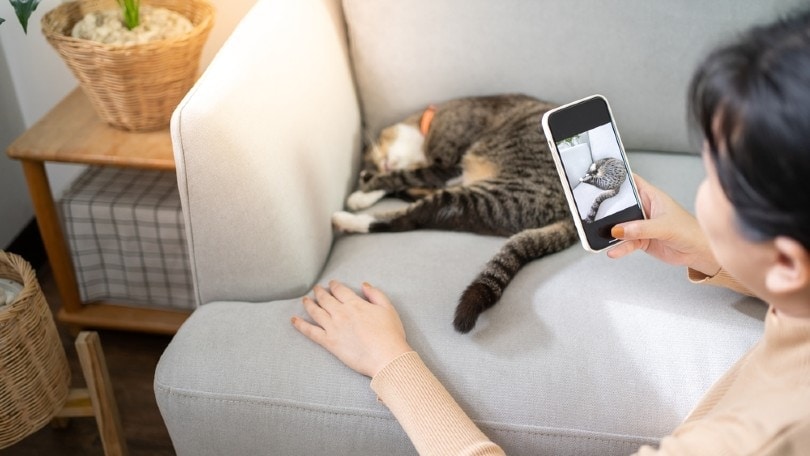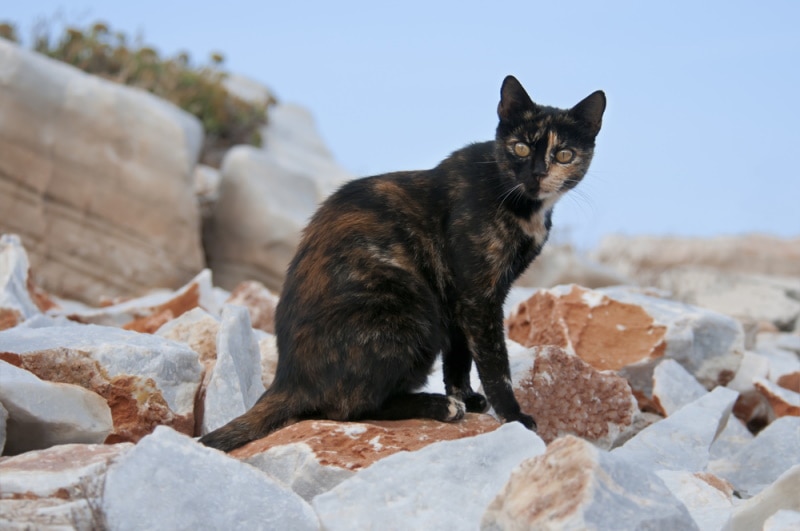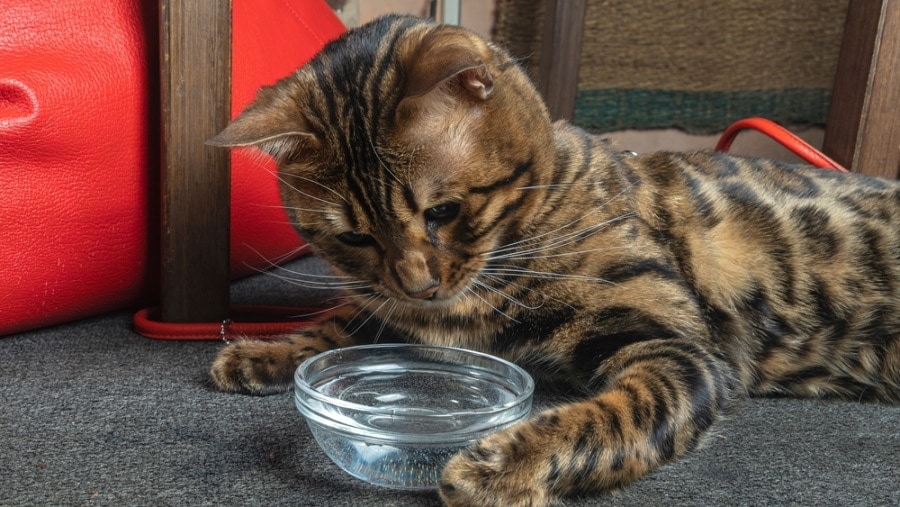Can Cats Eat Carob Chocolate Substitute? Health & Safety Facts
Updated on
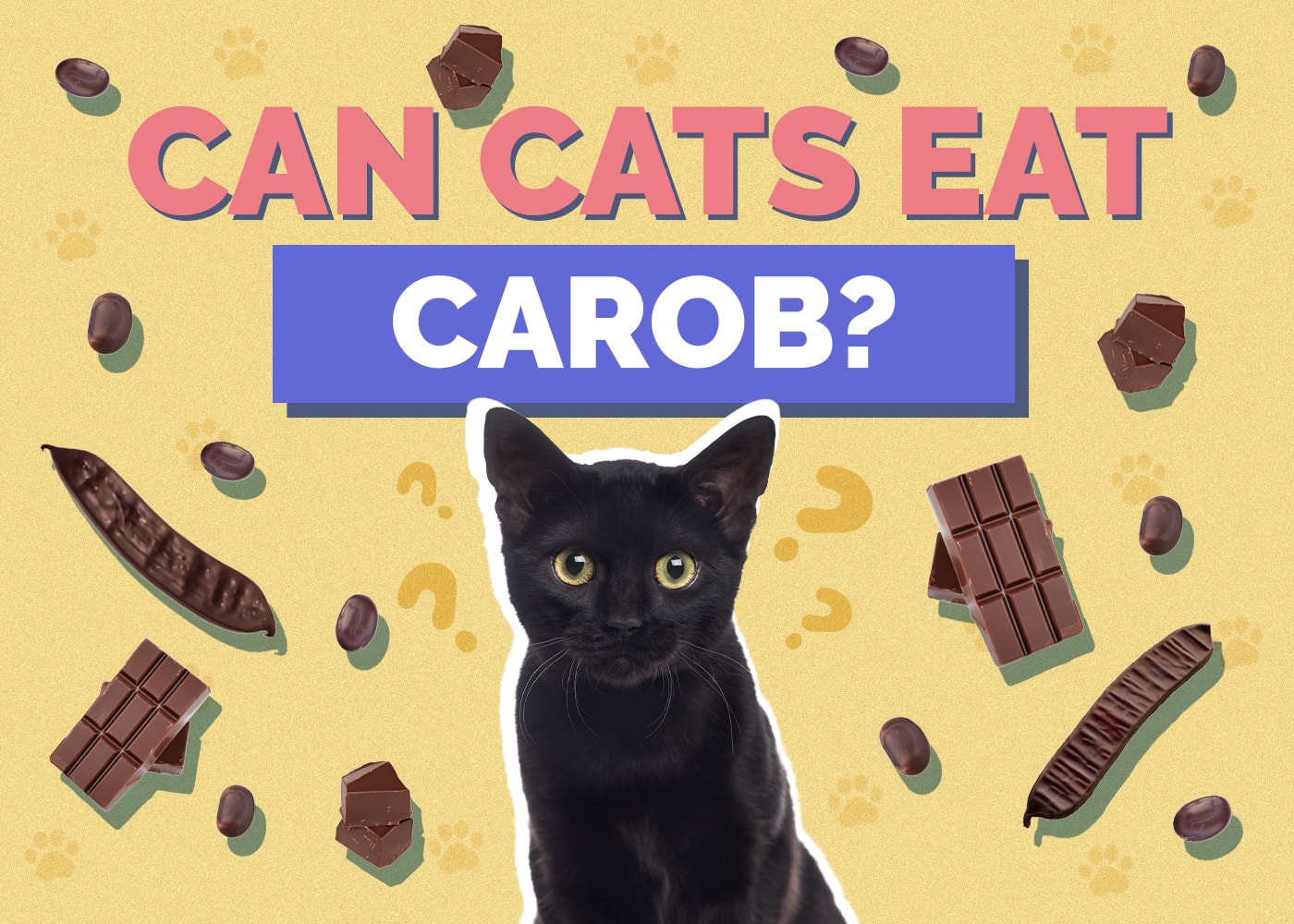
Most of us know that chocolate, while delicious, is very dangerous to our pets if ingested. Chocolate toxicity is most common among dogs, but this sweet treat can be harmful to our feline friends as well. Health-conscious individuals may be familiar with carob, a commonly used chocolate substitute, but can cats eat carob chocolate?
Yes, carob is safe for your cat to eat, although, like any food given as a treat, it should be offered only in moderation. In this article, we’ll discuss what carob is and what makes it a safe food for cats, as well as how to best incorporate this food into your cat’s diet.
What Is Carob?
Like chocolate, carob is produced from a plant, in this case, the carob tree. An evergreen tree native to the Mediterranean region, carob is now grown worldwide. The tree produces dark-brown pods full of tiny seeds and sweet pulp.
Once dried and roasted, the pods are ground up to produce carob powder. This powder can be used as-is or as an ingredient in other products like carob chips. Because it’s dairy-free, carob is a good alternative for vegan or lactose-intolerant individuals.
Carob gum is also commonly used as a food additive and in cosmetics and related products.
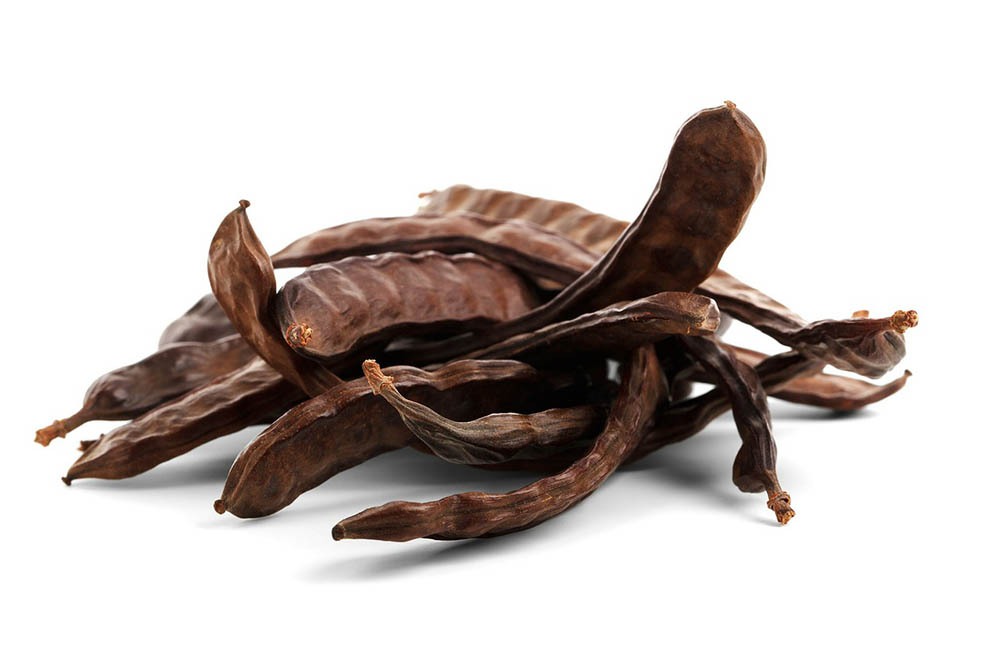
Why Carob Is Safe For Cats
Carob is safe for cats because it lacks the two dangerous ingredients found in chocolate: caffeine and theobromine. Both these compounds are stimulants that are safe for most people but cause symptoms such as elevated heart rate, seizures, and even death in cats.
Contrary to popular belief, most cats are lactose-intolerant, so dairy-free carob is less likely to upset their stomachs.
Do Cats Like Carob?
Like humans, every cat has their own individual likes and dislikes. Whether or not your cat likes carob is difficult to predict ahead of time. One thing we do know, however, is that if your cat does like carob, it’s not because they have a sweet tooth.
Studies have shown that cats cannot actually taste sweet flavors. They can detect salty, sour, and bitter tastes but not sweet ones. Cats who like carob may be enjoying the bitter notes of the flavor or are responding to the texture or fat content of the product.
Is Carob Healthy For Cats?
Carob doesn’t pose a danger to your cat but it’s also not particularly healthy for them. Because cats are obligate carnivores, they can’t absorb nutrients from any source that isn’t animal-based. Since carob comes from a plant, any nutritional value it does have isn’t very useful to a cat.
While carob chocolate is low in fat, it does contain a lot of sugar and carbohydrates. Cats don’t need to completely avoid carbohydrates but they do better on a low carb, high protein diet as a general rule. If you have a choice between a low-carb treat (more on this in a minute!) or carob, the healthier option will be to avoid carob.
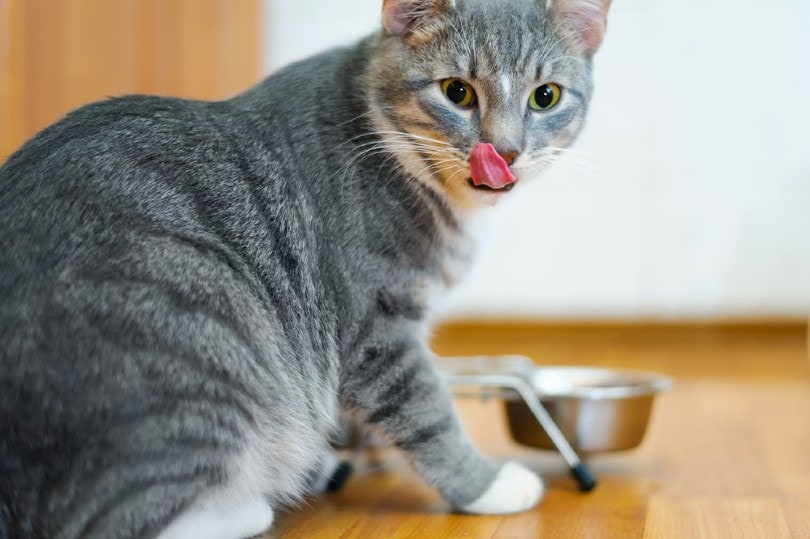
What Are Some Healthier Treats For Cats?
First, keep in mind that the bulk of your cat’s daily calories should come from nutritionally balanced cat food. Feeding a quality, commercial diet is the easiest way to make sure your cat is getting all the essential vitamins, minerals, and amino acids they need. Treats should make up no more than 10% of your cat’s daily caloric intake.
Your veterinarian can help you calculate how many calories your cat should eat each day. If you want to offer treats, you could purchase commercial treats or even try making your own! Another option is to feed your cat safe human foods such as:
- Fruits like berries or cantaloupe
- Vegetables, such as broccoli or cucumber
- Cooked fish or lean meat
- Cooked eggs
- Grains, like oats or polenta
Besides chocolate, foods you should avoid feeding your cat include:
- Raw meat, fish, or eggs
- Grapes or raisins
- Dairy products
- Bread dough
- Onions or garlic
No matter what food or treats you feed your cat, keep a close eye on their weight and adjust what they’re eating as needed.
Now that you know what you can safely feed your cat, it’s just as important to find a bowl that supports their health and well-being. With whisker-friendly bowls and a wide tray to catch any spills, our Hepper NomNom Cat Bowl is our favorite option.
Final Thoughts
Cat owners love to share as much of their lives as possible with their cats. In many cases, that love may include sharing food. Of course, you want to make sure that you aren’t feeding your cat anything dangerous and when it comes to carob chocolate, you can feel secure knowing that it’s safe for your cat to eat. Just remember to keep all treats, including carob, to a minimum to ensure your cat remains at a healthy weight.
See also:
Featured Image Credit: Hans, Pixabay




